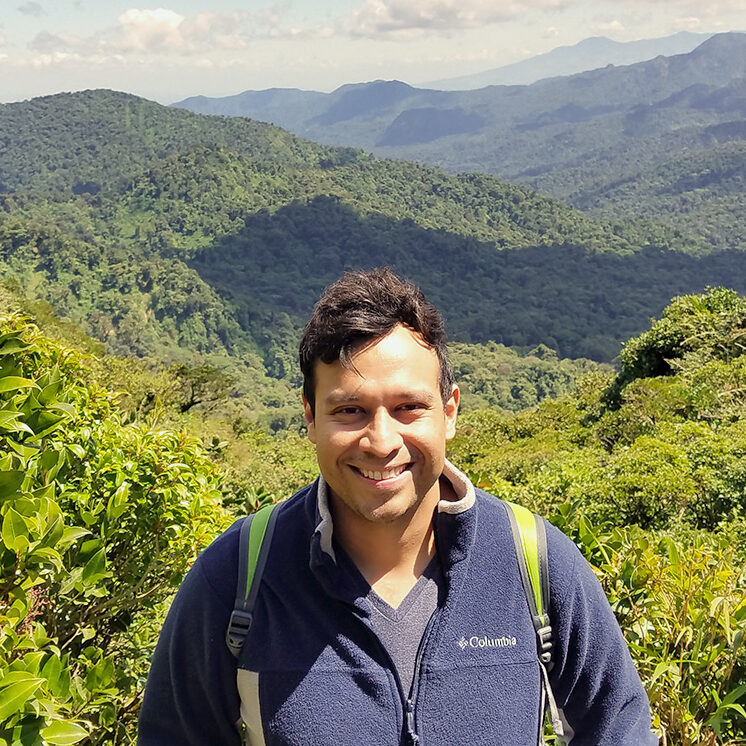Why did you decide to earn a degree at Harvard Extension?
I was working in the manufacturing industry and thinking about switching career paths. I was very interested in environmental and social justice issues, so I took a few classes at Harvard Extension.
Originally, I was not planning to earn the degree, but the classes familiarized me with the vision of the sustainability program. I liked the subjects and the enthusiasm that professors shared in the classroom. I also met classmates, faculty, and friends of the sustainability program, which gave me a sense of the type of community that was being built in the program. I met a lot of people who were also pursuing a career change.
Additionally, the program is flexible, which allowed me to work and pursue the degree at the same time. All of these things encouraged me to earn the degree.
How did you manage to balance your studies with work and family responsibilities?
Time management. Lots of lists.
What types of student resources and special options did you take advantage of as a student at Harvard? How did they help?
I used a lot of resources while completing my coursework and conducting my thesis research: GIS labs, the Institute for Quantitative Social Science and their free training sessions on Python and R, the Computer Lab on Church Street, and the Hollis scan and deliver service.
In which ways did you connect with the Harvard community?
Connecting with the Harvard community was a very rewarding experience. I was a member of a really nice club that we have at the Extension School called the Harvard Extension Student Environmental Club (HESEC). We hosted events, screenings, and lectures with experts in the field of sustainability. Every year, the club rents a bus to go to an important environmental and sustainable development career fair hosted by Columbia University Earth Institute. We visited wind turbines, wastewater treatment plants, and chocolate factories. We also had great mixers!
This past year, I was also part of the Inaugural Cohort of Fellows at the Climate Leaders Program (CLP). This program brings students from all schools across Harvard who are envisioning a career as future leaders in their fields to solve this climate crisis. CLP has really been an amazing experience!
I was also involved with Organizers for Radical Climate Action (ORCA). Last fall, we rallied in support of a Green New Deal at Harvard Kennedy School Institute of Politics—and Alexandria Ocasio-Cortez (D-NY), Rashida Tlaib (D-MI), Joe Neguse (D-CO), and Andy Levin (D-MI) came out to support our rally, which was very exciting.
Do you have a favorite class or faculty member? Why?
A couple of classes completely changed the way I envision my future career path. Law for Sustainability with Rick Reibstein took me way out of my comfort zone, but also helped me realize how much I enjoy legal thinking. I also enjoyed the passion that he shares with his students about law.
Nicholas Ashford’s class on technology, globalization, and sustainable development was remarkable—and I have not seen a course of that nature anywhere else. This class goes from technical and science topics into social sciences as a vehicle to jump into trade issues, and finally deals with law and policies. The class is a ride that I truly enjoyed.
Schrag and Laakso’s Climate-Energy Challenge] course is a classic in the field of sustainability and the environment. Now, I am fluent in gigatons. Highly recommended.
Do you have any advice for new students?
Follow your passion. Get to know your classmates. Reach out to experts that are working on things that you are interested in. Ask for help. Be part of a team if there is an opportunity to do so (HESEC, CLP, Council of Student Sustainability Leaders, Biodiversity for a Livable Climate—just to mention a few). Take advantage of all the resources that Harvard provides. Enjoy it.
Describe your Extension School experience in one word.
Sharpening.
This interview has been edited for clarity and length.

